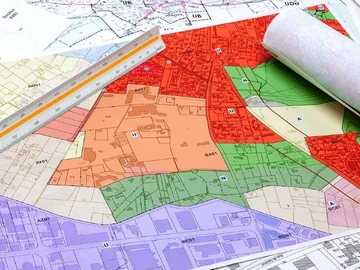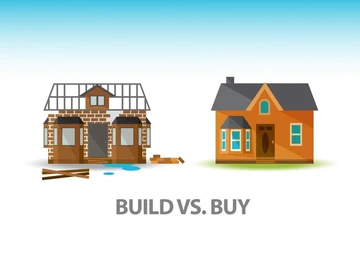If you’re planning to buy or sell property in Zimbabwe in 2025, understanding the conveyancing process is crucial. With new procedural updates from the Deeds Office and evolving legal requirements, it’s more important than ever to know the exact steps involved in legally transferring property ownership.
Here’s your step-by-step 2025 guide to conveyancing in Zimbabwe—backed by current insights, local examples, and expert tips to help you navigate the process smoothly.
1. What Is Conveyancing in Zimbabwe?
Conveyancing refers to the legal process of transferring property ownership from one party to another. In Zimbabwe, this process is regulated by the Deeds Registries Act (Chapter 20:05) and overseen by the Deeds Office, under the Ministry of Justice.
2. Step-by-Step Conveyancing Process (Updated for 2025)
Step 1: Signing the Sale Agreement
- A Sale Agreement (Memorandum of Agreement) is drafted and signed by the buyer and seller.
- Must clearly state the property description, price, deposit amount, and special conditions.
- A lawyer or registered estate agent usually prepares this document.
Step 2: Paying the Deposit
- Buyer pays the agreed deposit (typically 20%–30%) into a trust account held by the conveyancer or agent.
Step 3: Appointing a Conveyancer
- Only a registered conveyancer (property lawyer) can handle the Deeds Office transfer process.
- Either party may appoint the conveyancer, but it’s usually the seller's responsibility.
Step 4: Conducting Deeds and Title Search
- A search is performed to ensure the property is free of disputes, mortgages, or caveats.
- Estimated cost: USD $100 – $150.
Step 5: Obtaining Rates and Tax Clearance
- The seller secures a Rates Clearance Certificate from the local authority (e.g., Harare City Council).
- Required for all urban property transfers.
- Typical clearance fees: USD $500 – $1,500 depending on location and arrears.
Step 6: Payment of Transfer Fees and Capital Gains Tax (CGT)
- The seller settles Capital Gains Tax (CGT), calculated at 20% of the capital gain or 5% of the selling price if the seller is a non-resident.
- Deeds Office Transfer Fees: Usually 4% of the property value.
Step 7: Lodging Documents at the Deeds Office
- All signed documents, clearances, and proof of payment submitted to the Deeds Office (Harare/Bulawayo).
- Processed within 3–6 weeks depending on workload.
Step 8: Property Registration and Issuance of New Title Deed
- Upon successful verification, the new Title Deed is issued in the buyer’s name.
- Final step confirms legal ownership transfer.
3. Important 2025 Updates You Must Know:
1. Mandatory Digital Deeds Submissions:
As of January 2025, the Deeds Office now accepts digital copies of sale agreements, title searches, and clearance certificates, reducing paperwork and processing delays.
2. Revised Transfer Fees Schedule:
Transfer fees recalibrated based on property zones:
- Harare North & Borrowdale properties: 4.5% fee
- High-density suburbs (e.g., Chitungwiza): 3% fee
3. Stricter CGT Enforcement:
Non-compliance leads to Deed rejection or delay. Sellers must pre-clear with ZIMRA before transfer.
4. Faster Processing for Mortgage-backed Sales:
Mortgage sales via CBZ, NMB, and Stanbic now prioritised with a turnaround of 4 weeks for Deed issuance.
4. Typical Costs of Conveyancing in Zimbabwe (2025):
|
Item |
Estimated Cost (USD) |
|
Conveyancer’s Fees |
$800 – $1,500 |
|
Transfer Fees |
3% – 4.5% of property value |
|
Capital Gains Tax |
20% of gain or 5% of price (non-residents) |
|
Rates Clearance |
$500 – $1,500 |
|
Deed Search |
$100 – $150 |
(Source: Property.co.zw market data, June 2025)
5. Common Delays & How to Avoid Them
- Unpaid Municipal Rates: Always clear city council rates early.
- Incomplete Sale Agreements: Use registered estate agents to avoid errors.
- CGT Clearance Delays: Pre-clear with ZIMRA to avoid bottlenecks.
6. Tips for Diaspora Buyers
For Zimbabweans abroad:
- Appoint a trusted local conveyancer or lawyer.
- Ensure you have a ZIMRA Tax Clearance Number (even if non-resident).
- Consider developer projects that offer pre-packaged conveyancing (e.g., in Pomona or Gweru).
Conclusion: Navigating Property Transfers the Smart Way in 2025
With the recent updates to Zimbabwe’s conveyancing process, both local and diaspora buyers must stay informed to ensure smooth, legal, and timely property ownership transfer. Whether purchasing in Harare, Bulawayo, or upcoming growth areas like Ruwa and Gweru, understanding the full conveyancing process will save time, money, and frustration.
Find verified, conveyancing-ready property listings on Property.co.zw your trusted marketplace for hassle-free real estate transactions in Zimbabwe.
 Continue with Facebook
Continue with Facebook
 Continue with Email
Continue with Email














